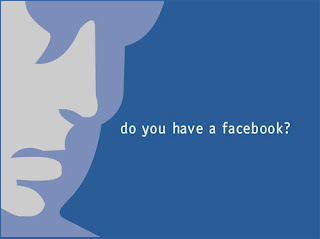I hope you have nothing but good, trustworthy friends. If you don't, they might tell the world you are in some pretty crazy, or even disturbing, places, thanks to Facebook's new "Places" tool.
An angry "friend", for example, can broadcast to everyone (including your boss) that you are in a coffee shop, museum or airport -- even if you are sitting in your cubicle working. Even if you haven't agreed to use Facebook's location service. And even if you aren't logged in to Facebook.
The new Places tool, which is integrated into the standard Facebook mobile application, was released last week with much fanfare and some hand-wringing about its privacy implications. For the most part, however, Places offers users lot of control over when they tell others where they are. Users must actively check-in -- as opposed to being automatically checked in -- as they move around.
But there’s an exception: By default, friends can "check you in" whenever they want, and wherever they happen to be. While checked-in friends don’t appear in the Places tool without their approval, the check-ins are announced to the world on the friend’s wall through status updates. Further, those updates are controlled by your friend’s privacy policies, not yours.
In other words, Facebook's tool makes violating your friends' privacy easy.
"I think it’s quite Orwellian. We have literally become each others’ Big Brothers," said Alessandro Acquisti, a privacy expert at Carnegie Mellon University.
There is a way to turn this feature off (instructions below). And checked-in friends receive notice that they've been "tagged" as present in a place, and have the opportunity to remove the tag. By then, however, the damage could be done.
Last year, a Web site named "PleaseRobMe.com" created a stir when it poked fun at location-disclosure Web sites like Foursquare.com as creating opportunities for would-be home burglars by making it easy to determine when users were not home. But at least Foursquare users decide for themselves when they will reveal where they are.
Now, if you are my friend, Facebook lets me tell my friends -- and with some tweaks, everyone -- that you are with me, wherever I am.
Facebook has so far responded to this complaint by saying there is no problem. Friends who are checked in don’t appear in Places until they consent. And publishing location information in status updates is no big deal, according to the social networking site.
“People have always been able to tell others where they’ve seen friends,” said Facebook spokesman Barry Schnitt. For example, I can update my status by saying, "Reader Jane Doe is with me at this Seattle coffee shop," even if that were a lie. But that's a false analogy, warns Acquisti.
"People usually don’t broadcast to hundreds of friends, as well as strangers, at the same time your current, or presumed, location," he said.
Also, Facebook Places creates a level of validation that a mere status update would not. Users have to be near the place they check in -- location-based services in a mobile device verify that -- so when a Places user tells the world, "I'm at the Bellevue movie theater with LeBron," it's far more believable.
Finally, users who are spooked by a Places status update, but who log in infrequently, won’t receive notice for days, or even weeks.
Debate about the friends’ check-in issue has been raging at an information ethics blog run by Michael Zimmer, a professor at the University of Wisconsin-Milwaukee. Facebook’s Schnitt has even jumped into the conversation there, arguing that new Places tools actually provide users even greater control over personal information than they’ve had before. But Zimmer isn’t buying it.
“While I understand that users could always mention someone else in status updates, there's a meaningful difference with regard to Places,” Zimmer told me. “Facebook has provided an official and automated means of sharing someone’s location, where users can now be systematically linked to a specific set of coordinates. These new check-ins could be potentially logged into a database, archived, mined... This is a significant change from just mentioning someone. The concern here is that locational data needs to be treated differently than just an average status update. This is why Facebook has tried to design the system so that, in their terms, no one can be checked in to a location ‘without their explicit permission’. Unfortunately, they fell short.”
Facebook's business planWhy would Facebook stubbornly keep this spooky feature in its new tool, and enable it by default, over the wide-eyed objections of privacy advocates?
There are two ways to create a fast-growing new business:
1. Create a new product that's so useful, millions of people rush to use it.
2. Have an existing business that millions of people use, and force them to use your new product.
Here, Facebook has picked technique No. 2. Its Places feature must play catch-up to a host of existing location services like Foursquare. There's no better way to catch up to a first-mover than tying your new feature into your existing product. And one way to make consumers use that product is to compel them to do so. Facebook is counting on its amazing network effects and help from early adopters, who will drag otherwise indifferent users into its location tool, like this: "What? Someone's telling everyone else where I am? I'd better check out this new 'Places,' thing."
My colleague Wilson Rothman offered a compelling argument last week that Facebook is the new Google. People use Facebook to find things more than ever. But if I were Facebook, I'd be worried about the Justice Department seeing Facebook as the new Microsoft, attacking small competitors with its dominant market position, forcing users to adopt a product that subsumes another start-up -- and doing it with an aloof, take-no-prisoners attitude that will someday wrinkle the nose of the wrong U.S. Senator. Places, like so many Facebook tools, is clever, well-designed, integrated nicely with the rest of the service, and can be fun to use. It's hard to imagine a better way to find friends when you arrive in a city for a convention or family wedding. You can simply ask your mobile phone, "Who's nearby?” or "Who's in my favorite Irish bar down the corner?" Used deftly, it might even help you avoid an awkward meeting with an old girlfriend.
But the way it's been designed for maximum network effect, Places is just as likely to help an old boyfriend's stalking efforts. All it takes is a random friend attempting to check in the former girlfriend.
Consumers have long had a tortured relationship with privacy -- most say it’s important to them, but few actually behave that way. That’s because it’s often hard to predict the future consequences of a privacy-related transaction, Acquisti says.
“Giving someone your privacy is like giving someone a blank check,” he says. “You never know what amount might be filled in when it comes back to you.”
Dealing with location information should create an extra level of caution, Zimmer says.
“Not to be paranoid, but there are serious concerns about this,” he said. “People don't think about (location information) much, but it can reveal quite a bit about you. When you start piecing information together, you can start figuring out what kind of person someone is -- say if they are in a particular church, or they are at a location near a women's health clinic. It might reveal something about you, or assumptions might be made about you that are not really true.”
Red Tape Wrestling TipsWhile there are several privacy layers available for use with the Places tool, the simplest way to avoid Places headaches is to opt out of automatic placement by friends. It's relatively simple, though I wish it were simpler. Visit Facebook.com, click on account, and then "privacy settings." Then, at the bottom of that page, click on the word "customize settings." Under the category, "Things others share," find "Friends can check me in to Places," and select "Disabled." While you are there, review your other settings and make sure you are comfortable with them.
To fine-tune your Places settings even more, look under "Things I share," and select who can see the places you check in to, and decide if you want others to see you in the "People Here Now" area. But remember, even if you limit the number of people who can see you after you check yourself in, you haven't controlled who can know if you've been checked in by a friend -- that's controlled by your friend's privacy settings, not yours. In this scenario, even if you have opted out of broadcasting your places setting, while you won't appear in the "People Here Now" area, your presence will be disclosed on your Friend's wall post unless you’ve disabled “Friends can check me in.”
Finally, as with all privacy issues, it’s often true that information which seems meaningless today might be valuable, and used against you, tomorrow. Divorce lawyers, for example, regularly subpoena supermarket loyalty cards while fighting child custody cases (“Look at all this junk food he buys, your honor!”). It makes sense to limit your use of any tool that helps build a database of location-based information while we all learn what the long-term implications might be.






